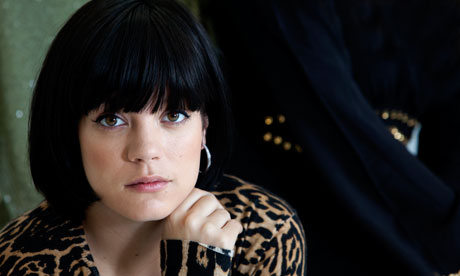
To lose a baby at four months pregnant, as Lily Allen did in 2008, is devastating – but to lose another at six months, when you have a sizeable bump and a wardrobe full of maternity clothes, must be beyond shattering. I hope Lily and her boyfriend Sam Cooper are not pursued by photographers as they mourn their loss. If there is anything positive to be taken from such a sad situation, it can only be that miscarriage may become less of a taboo subject.
I miscarried two years ago. In November 2008 my husband and I attended our routine 12-week scan excited about seeing our baby for the first time. I'd had morning sickness, cravings, my belly was rounded – I never expected to be told that our baby had died four weeks earlier. The next week I was booked in for a "medical management of miscarriage" – I had to take some tablets and wait for our baby to pass through my body. It was, quite frankly, the worst day of my life. I cried solidly for weeks and struggled to understand why our baby had died.
To us, it was our baby. It wasn't a foetus, as the hospital called it, to be incinerated with the rest of the day's waste. It wasn't a bunch of cells that had no chance of surviving, as one helpful person told me. It was our baby, our future – and suddenly that future was taken away from us.
When someone – a grandparent, a friend – dies, you have people to share that bereavement with. You have a funeral; you tell stories about that person. With pregnancy loss, people feel fleetingly sorry for you, but then they move on and stop asking you about it. For them, the baby wasn't a real entity – whereas you've been picturing your new addition since the day you saw those two little lines on a stick. You may shed a silent tear around what would have been the 20-week scan, the due date, the anniversary of the loss. But no one else remembers.
I am always open about our experience because I felt so alone and I don't want other people to feel that way. I understand not everyone will feel as I did, and not everyone wants such private matters to become public knowledge. Lily and Sam didn't have a choice, and William Hague felt he had no option but to reveal his wife Ffion had experienced multiple miscarriages in an effort to quell rumours about his private life. When Katie Price spoke of her miscarriage, Peter Andre said he didn't think she should have been so open about such a personal matter. Maybe she shouldn't have been, but I was glad she felt she could talk about it and took comfort in knowing that other women felt as I did.
Given one in four pregnancies ends in miscarriage, it's extraordinary that we hear so little about pregnancy loss. I shudder every time I see one of those "is she expecting?" stories in the gossip magazines. I often wonder about the ones that never materialise into pregnancy announcements. There can be no shame in miscarriage. If talk of miscarriage and its after-effects were more acceptable, perhaps women (and men) would be more willing to ask for help if they are not coping, and those around them will better know how to support them. Perhaps well-meaning friends won't take it upon themselves to second-guess your pregnancy when you're too scared to tell anyone else for fear of what could go wrong.
My husband and I now have a beautiful 11-month-old daughter, Eva. Poignantly, she was born exactly a year to the day after that dreadful hospital procedure. We continually remind ourselves how lucky we are. I hope Lily and Sam, Ffion and William will one day be able to say the same.

